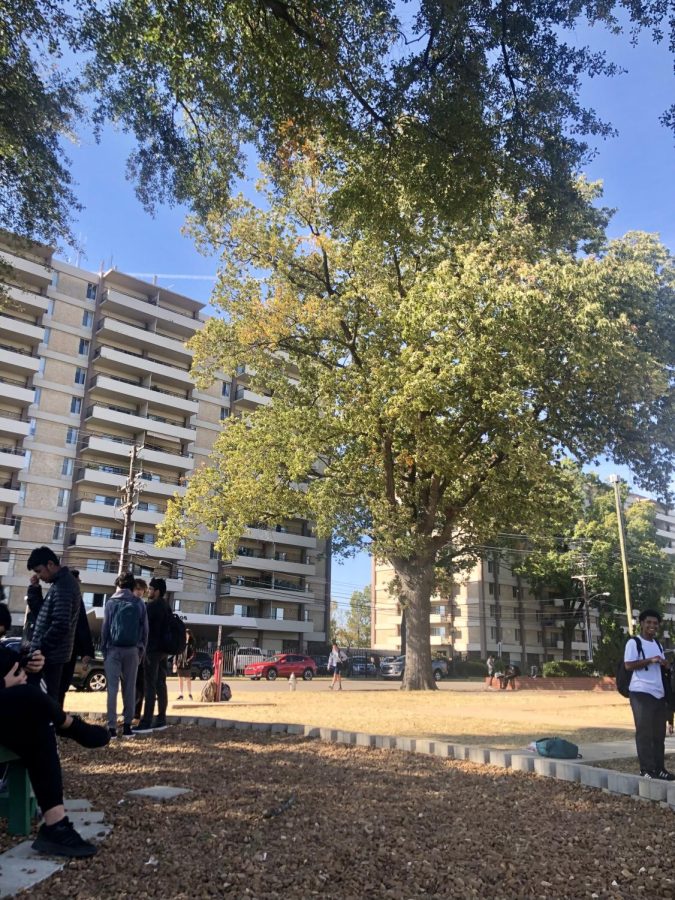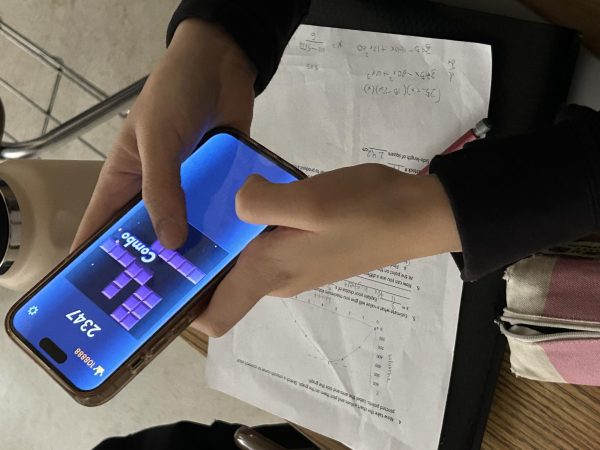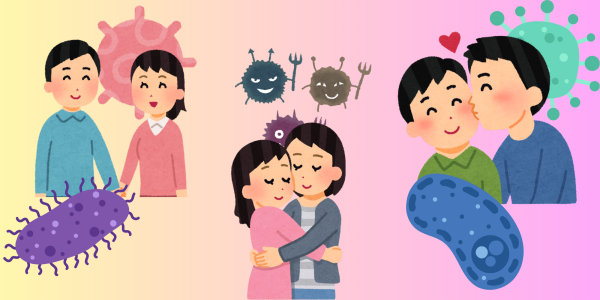As days get shorter, seasonal depression kicks into full force
Students bundle up and chat in front of the trees as the weather changes and the trees begin to change color. Seasonal affective disorder (SAD) differs from major depressive disorder in that it occurs at the same time each year and affects people of all ages and genders.

(ELLEN TAN//THE SCROLL)
From the warm summers to freezing winters, the shift in weather can also translate into behavior shifts which can affect one’s personal or academic life. This phenomenon is also known as seasonal depression, seasonal affective disorder, or SAD, and it affects people regardless of age or gender.
SAD causes people to become more reserved, worn down, depressed, or sluggish. Seasonal depression is not the same as major depressive disorder, despite having similar symptoms; it relies more on the time of year and can be caused by a variety of factors such as a lack of sunlight due to shorter days and a lack of socializing with others. However, this does not always happen during the colder months; the same symptoms can appear during the warmer months as well.
“Our circadian rhythm is dependent on the light we get,” White Station social worker, Nathaniel Huckaby said. “When we feel sunlight, it actually activates and deactivates different neurotransmitters in our brain that signal to wake up. When it gets colder … the days are shorter, we are waking up later … we want to stay asleep longer but we have to get up earlier and our bodies are thrown way out of wack.”
Not only does seasonal depression affect the body, but it can also affect one’s personal or academic life. Seasonal depression causes people to feel unmotivated and tired.
“I just notice that my mood, overall, goes down a lot,” Mia Kitterlin (10) said. “The less the sun is out, the less happy I get … [Seasonal depression] has made my grades go down before. It affects my test scores … [and] my social life. I have a harder time having a good time with my friends and it overall affects my mood.”
For those experiencing seasonal depression, there are many ways to seek help — both at school and elsewhere. Coping with seasonal depression is not just seeking professional help. One can alleviate symptoms by getting sunlight exposure earlier in the day or finding other methods of socializing or interacting with other people.
“Just talk to your friends,” Aasritha Butti (9) said. “You and your friends have similar experiences. So I feel like when you get to relate to someone it makes going through that experience a lot easier.”
As the weather changes, teachers may notice changes in the behavior of their students, and it is critical for them to empathize and know how to reach out.
“If they are seeing something that is more than the normal change in behavior than they should also reach out to the counselors or one of the social workers saying, ‘Hey, this student has been experiencing … more severe depression and could use some more support,’” Huckaby said.
Your donation will support the student journalists of White Station High School. Your contribution will allow us to purchase equipment and cover our annual website hosting costs.








































